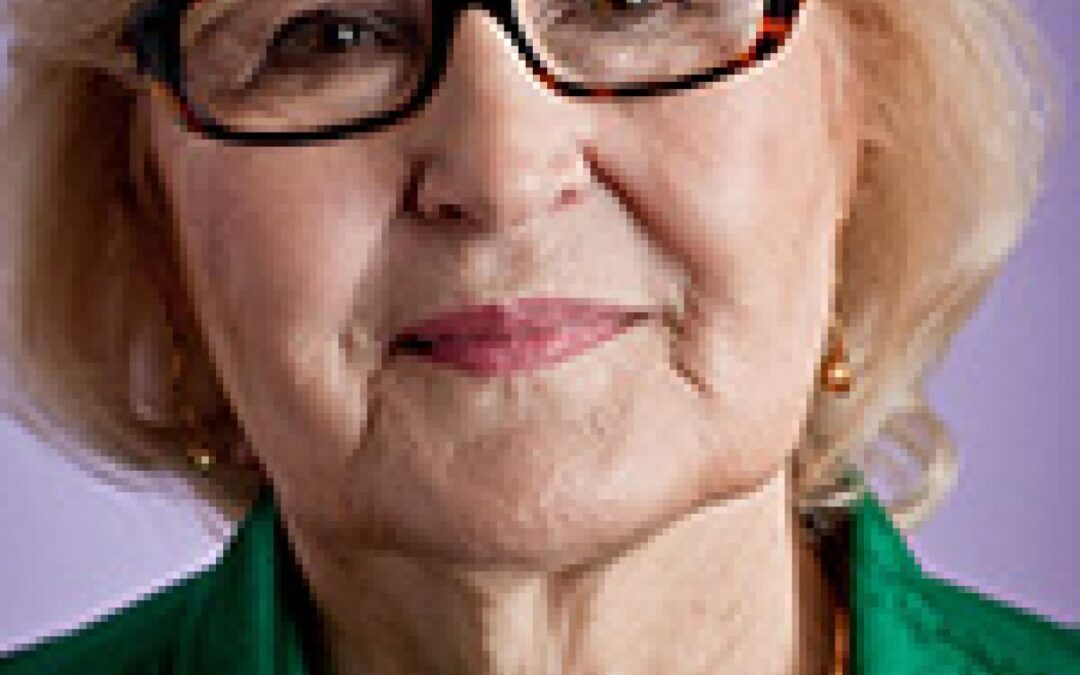In this episode of the “Courage to Lead” interview series, we have the honour of hearing from Professor Pauline Boss, author of Loving Someone who has Dementia, a distinguished expert in ambiguous loss, family resilience, and caregiving for individuals with dementia. As a professor emeritus from the University of Minnesota, Professor Boss shares her profound insights on leadership, her immigrant background, and her extensive research on ambiguous loss, particularly as it relates to dementia and family dynamics.
Understanding Ambiguous Loss – Professor Pauline Boss
What is Ambiguous Loss?
Ambiguous loss is a concept developed by Professor Pauline Boss to describe a type of loss that lacks closure or clear resolution. It can manifest in two primary forms:
Physical Absence with Psychological Presence**: This occurs when a loved one is physically missing but remains psychologically present in the minds of family members. Examples include cases of kidnapping, soldiers missing in action, or natural disasters.
Psychological Absence with Physical Presence**: This occurs when a loved one is physically present but psychologically absent, such as in cases of dementia, brain injury, or severe mental illness.
The Impact of Ambiguous Loss
Ambiguous loss can be profoundly disorienting and painful because it defies the typical processes of grief and closure. Families dealing with ambiguous loss often experience chronic uncertainty and a sense of unresolved grief, which can lead to significant emotional and psychological stress.
Caregiving for Individuals with Dementia
The Challenges of Caregiving
Caregiving for individuals with dementia presents unique challenges. Caregivers often face the dual burden of providing physical care while coping with the emotional toll of seeing their loved ones gradually lose their cognitive abilities. Professor Pauline Boss emphasises the importance of recognising that caregivers cannot dedicate 100% of their time to caregiving without risking their own health and well-being.
The Importance of Community Support
Professor Pauline Boss advocates for robust community support systems to assist caregivers. She highlights the need for:
Peer Support Groups**: These groups provide emotional and educational support, allowing caregivers to share their experiences and learn from one another. They can be facilitated by “veteran caregivers” who have firsthand experience with caregiving.
Faith-Based Organisations**: Churches, synagogues, and mosques can play a significant role in providing services and support to caregivers.
Local Agencies and Schools**: These institutions can create programs and resources to support caregivers, including young caregivers who may be taking on responsibilities for their grandparents.
Self-Care for Caregivers
Professor Boss stresses the importance of self-care for caregivers. Neglecting self-care can lead to burnout and serious health issues. She encourages caregivers to:
Seek Medical Care**: Caregivers should prioritise their own health by seeking regular medical care.
Engage in Social Activities**: Maintaining social relationships outside of caregiving is crucial for mental and emotional health. Activities such as going out for lunch, bowling, or golfing with friends can provide much-needed respite.
Embrace “Both-And Thinking”**: This mindset allows caregivers to recognise the duality of their loved ones’ presence and absence, helping them cope with the emotional complexities of caregiving.
Leadership and Continuous Learning – Professor Pauline Boss
Leadership in the Context of Caregiving
Professor Pauline Boss’s journey into leadership began in high school and evolved into a focus on ambiguous loss and family resilience. She believes that true leadership lies in the ability to articulate challenges and provide guidance, particularly in balancing professional aspirations with family responsibilities.
The Role of Continuous Learning
Continuous learning is vital for personal growth and staying engaged with the world. Professor Boss finds joy in reading, attending lectures, and exploring new ideas. She believes that staying educated empowers individuals to take informed action and adapt to change.
Staying Informed in an Age of Misinformation
In today’s world, critical thinking is essential for staying informed. Professor Pauline Boss recommends:
Seeking Scientifically Sound Sources**: Engage with reliable news outlets, such as public television or reputable magazines.
Being Cautious with Social Media**: Be discerning about the information consumed on platforms like Instagram and YouTube.
Discussing Ideas with Others**: Engaging in conversations with community members can provide valuable perspectives and help verify information.
Advice for Leaders
Finding Your Passion
Professor Pauline Boss encourages leaders to find their passion and focus on helping others. She emphasises that the true value of a career lies in the positive influence one can have on others, rather than merely pursuing financial success.
Supporting Caregivers in the Workplace
As the population ages and dementia becomes more prevalent, workplaces must adapt to the realities of caregiving. Employers should recognise that caregiving is a long-term issue and provide support systems for employees who are caregivers. This includes flexible work arrangements, access to support groups, and resources for managing caregiving responsibilities.
Conclusion
This episode of the “Courage to Lead” interview series offers valuable insights into the challenges faced by caregivers of individuals with dementia and the importance of community support. Professor Pauline Boss’s expertise in ambiguous loss and her compassionate approach to caregiving provide a framework for understanding the emotional complexities of this experience. Her call to action for communities, workplaces, and individuals to support caregivers is a powerful reminder of the collective responsibility we share in addressing the needs of those who care for others.
By embracing continuous learning, critical thinking, and community support, we can navigate the complexities of ambiguous loss and caregiving with resilience and compassion.

